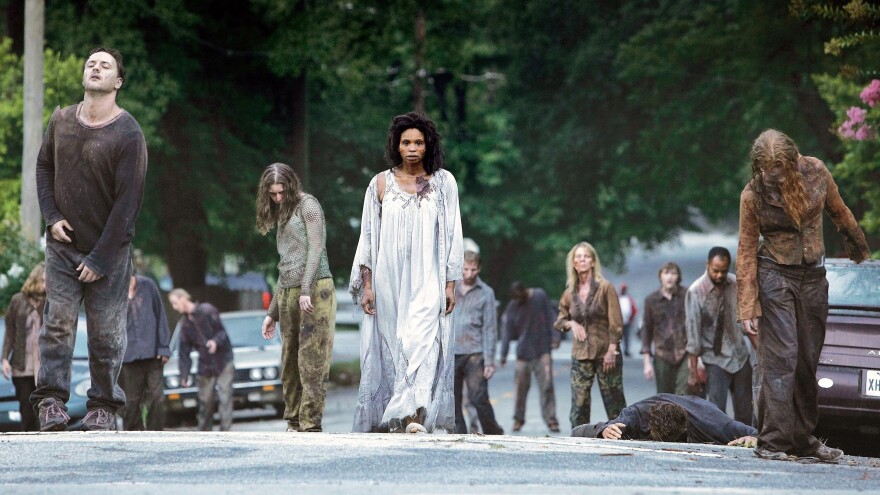How will humans survive the zombie apocalypse? Will it be each man for himself or will a coordinated effort be what saves us from ultimate doom?
An MIT professor is trying to answer this question for us mortals. "There is a price that society pays if everyone determines his behavior selfishly," Ruben Juanes says. And this cost of selfish behavior is what game theorists call the price of anarchy.
When it comes to a zombie attack or a more common outbreak of flu or other infectious disease, the price of anarchy is a much higher rate of infection, Juanes says. His research finds that's especially true in areas with large commuter populations, like the East Coast.
Suppose the town you live in has an outbreak of something like influenza. You'd want to be able to go about your daily life without getting infected. So how would you plan your commute to minimize the chances of getting infected or further spreading the disease?
You could act selfishly and use the quickest, safest route home. Or you and your neighbors could all agree on an altruistic strategy that minimizes everyone's collective risk.

Using U.S. Census data about populations and commuting patterns, Juanes and his colleagues created a mathematical model to determine the outcomes of each strategy.
The selfish strategy always leads to a more intense and widespread outbreak, while cooperating minimized the outbreak. In some areas, selfishness causes more infection — a higher price of anarchy. And if a region has a very high price of anarchy, that means it has more to gain from cooperating.
The findings, which appeared this week in Journal of the Royal Society Interface, show that densely populated areas with lots of commuters pay the highest price of anarchy. This isn't all that surprising.
What did surprise the researchers is that areas where large numbers of commuters were coming and going from multiple population centers were dramatically worse. For more isolated urban centers, like say Pittsburgh, the price of anarchy would be much lower than for cities along the dreaded I-95 corridor, where densely populated areas are continuous.
Of course it's worth mentioning that both scenarios in these models make some unrealistic, and perhaps idealistic, assumptions about human behavior, both in the capacity for selfishness and in the willingness to play by the rules in a group strategy. But, hey, you have to start somewhere.
Juanes concludes that in the event of an outbreak, government-imposed travel restrictions could have a critical benefit to areas along the East Coast.
Imposing travel restrictions, Juanes told Shots, "would be very costly and probably very unpopular." But in highly vulnerable areas, perhaps worth a serious conversation.
To stem the spread of contagious diseases in the United States the Centers for Disease Control and Prevention does impose restrictions on international travel, placing infected people on a "Do Not Board" or "Boarder Lookout" list. It has also made effective use of quarantining infected individuals.
But large-scale quarantines haven't been used to halt outbreaks for decades.
So when the zombie apocalypse arrives, before you load up your Jeep with supplies and head for the desert, maybe it would be best to see what your neighbors are planning.
And if you, like us here at Shots, can't get enough zombie news, check out the ongoing coverage by our pals over at The Two-Way.
Copyright 2020 NPR. To see more, visit https://www.npr.org. 9(MDAwMzY5MzE4MDEzMTE3ODg5NDA4ZjRiNg004))


